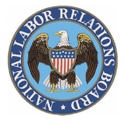
The National Labor Relations Board (NLRB) issued that final ruling last week after concluding many workers are not aware of their rights under the National Labor Relations Act.
If employers communicate with employees regarding personnel issues via the Internet or an internal company Intranet, they must also post the notice on those sites, ruled the NLRB.
The New York Times reported that this is the first time, since passage of the National Labor Relations Act in 1935, that employers have been ordered to post notices about employee rights to organize.
“This rule ensures that workers’ rights are effectively communicated in the workplace,” said AFL-CIO President Rich Trumka. “It is necessary in the face of widespread misunderstanding about the law and many workers’ justified fear of exercising their rights under it.”
The ruling does not affect railroads or airlines as they are covered by the Railway Labor Act, which is administered by a separate federal agency, the National Mediation Board.